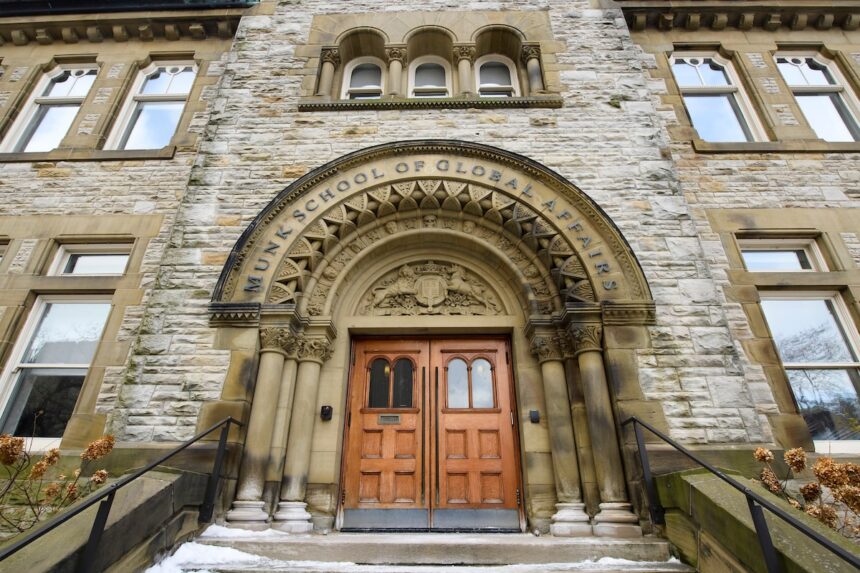In a groundbreaking collaboration announced yesterday, the University of Toronto and Harvard University have established a cross-border contingency arrangement that could provide a safety net for international students caught in immigration limbo.
The initiative comes as both countries grapple with shifting immigration policies that have left many international scholars uncertain about their academic futures. According to officials from both institutions, the partnership will allow affected students to continue their studies at the partner institution should visa complications arise in either country.
“This represents a new model of academic cooperation that puts students first,” explained U of T President Meric Gertler during a virtual press conference I attended. “When political winds shift, education shouldn’t have to stop.”
The arrangement emerged from growing concerns among university administrators about immigration unpredictability in both nations. Canada’s recent cap on study permits and the United States’ fluctuating stance on international student visas have created anxiety throughout higher education communities.
For Anika Sharma, a doctoral candidate in biomedical engineering at Harvard originally from Mumbai, the announcement brings welcome relief. “My research team spans both campuses already,” she told me during a follow-up interview. “Knowing there’s a backup plan means I can focus on my work instead of constantly checking immigration updates.”
The memorandum of understanding between the universities includes provisions for temporary student transfers, shared research resources, and academic credit recognition. While not a permanent solution to immigration challenges, university officials emphasize it provides crucial breathing room for students caught in administrative crossfire.
Immigration experts view the arrangement with cautious optimism. “Universities are adapting to a reality where student mobility can’t be taken for granted,” said Carlos Mendez, a Toronto-based immigration attorney with Gibson & Associates. “This kind of institutional flexibility represents an important acknowledgment that talent shouldn’t be constrained by borders.”
The partnership builds upon existing research collaborations between the institutions but takes them a step further by addressing practical considerations for students. According to Statistics Canada, international students contribute approximately $22 billion annually to the Canadian economy, while American institutions draw over one million international students each year.
“We’ve essentially created an academic insurance policy,” Harvard President Alan Garber explained. “If one door temporarily closes, another remains open.”
Critics have questioned whether the arrangement might inadvertently create a two-tiered system that benefits only elite universities and their students. When pressed on this concern, President Gertler acknowledged the limitation but suggested the model could be expanded.
“We hope this serves as a template for broader institutional cooperation,” he said. “Our goal is to demonstrate what’s possible when universities work together to protect educational continuity.”
Both universities emphasized that the arrangement is not designed to circumvent immigration laws but rather to provide temporary accommodation while students navigate legitimate immigration processes. The flexibility would apply primarily to students already enrolled at either institution who face unexpected immigration hurdles.
For Canadian universities, which have seen international enrollment surge over the past decade, maintaining stable pathways for global talent remains crucial. The federal government’s recent decision to cap study permits has raised questions about the country’s long-term approach to international education.
“This isn’t just about individual students,” noted Maria Liu, director of international student services at U of T. “It’s about maintaining Canada’s reputation as a welcoming destination for global talent.” She pointed to recent Ontario Chamber of Commerce figures showing international graduates fill critical workforce gaps in the province.
Implementation details remain under development, with both universities planning to have the framework operational by the fall 2023 semester. Key challenges include aligning academic calendars, coordinating research supervision, and ensuring housing availability for transferred students.
The announcement has sparked interest from other institutions. Sources within McGill University and MIT confirmed they are exploring similar arrangements, suggesting this could become a more widespread approach to immigration uncertainty.
For students like Sharma, these institutional safeguards provide more than just practical solutions. “It sends a message that we’re valued,” she said. “When the world seems increasingly closed off, universities are finding ways to keep doors open.”
As political pressures on immigration continue in both countries, this academic partnership represents a creative attempt to insulate education from political volatility. Whether it becomes a model for broader institutional cooperation or remains limited to elite universities will likely depend on its early implementation success.
The ultimate test may be whether such arrangements can withstand serious immigration policy shifts or merely provide temporary workarounds for minor disruptions. For now, however, thousands of international students at both institutions can breathe a bit easier knowing their academic journeys have an additional safety net.






